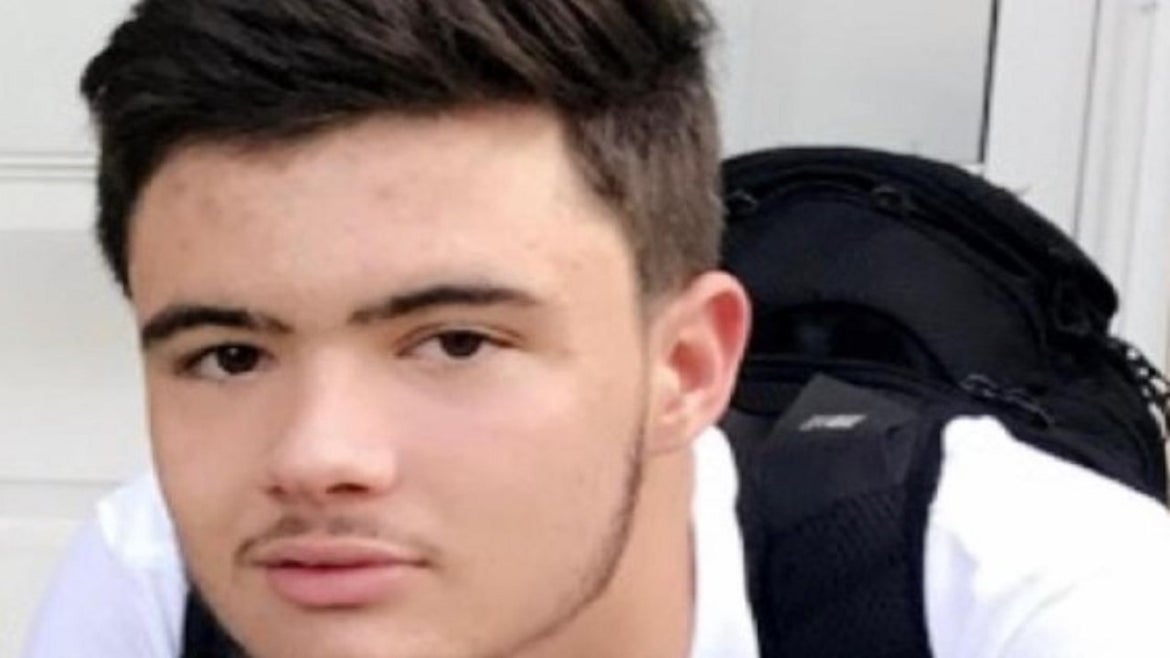Bryson Mitchell was 18 when he was shot to death inside a car he had stolen, authorities said.
A Virginia mother says she is incensed that a judge has overturned a murder conviction in the shooting death of her 18-year-old son.
"My son deserved better," said Sarah Esmailka “My son’s already gone. Someone else’s son or daughter or whoever will be next. They will be next. I hate to think that’s what it’s going to take, but this judge has no place sitting on a bench in anyone’s trial in Chesterfield County,” she told WRIC-TV on Monday.
Esmalika's son, Bryson Mitchell, was shot to death in 2019, after the teen stole a car belonging to the defendant’s girlfriend, authorities said. The judge's surprise July 8 ruling supported a defense motion asserting that trial evidence was insufficient to prove who fired the shots.
His decision also outraged Chesterfield Police Chief Jeffrey Katz and prosecutor Stacey Davenport, who held a news conference Tuesday to criticize the ruling.
“The defendant opted for a jury trial,” Katz said. “He got one. Members of our community, in their capacity as jurors, dispassionately weighed and synthesized evidence and testimony, returning a guilty verdict. For a judge to replace his judgment for that of the men and women of the jury is highly irregular.
"Doing so marginalizes the victim, denies justice to those who loved him, and removes the role of community involvement in the administration of justice," the chief said.
Davenport said the pronouncement of Circuit Judge David Johnson prohibits a review by appellate courts and sets a “very dangerous precedent.”
Because of double jeopardy rules, Demetrius Roots, 21, cannot be retried for the fatal shooting of Mitchell, who was found behind the wheel of a stolen Hyundai on Sept. 26, 2019, authorities said. Roots was convicted three months ago.
In his July ruling, Johnson wrote that the jury could reasonably determine Roots and his girlfriend, Samira Tarabay-Whitfield, 22 — who also is charged in the case — were near the shooting when it happened, based on cellphone records.
But after that, “reasonable inference ends and speculation, supposition and suspicion begin," the judge wrote. Proximity to the crime scene is insufficient "to support a conviction of murder in the second degree,” he said.
The judge also noted that the motion filed by defense attorney Steven Novey’s to vacate the verdict is grounded in law.
“There were no witness descriptions of the perpetrator to be challenged, no alleged confessions by Roots of which to challenge the reliability or credibility of the testifying witness, and no physical evidence which the Commonwealth could use to argue that Roots was the perpetrator,” Novey said in the motion, reported the Richmond Times-Dispatch.
Prosecutors filed a motion for reconsideration of the judge's decision, but it was denied, WRIC-TV reported.
At trial, prosecutors showed home video surveillance footage showing a person exit another car after Mitchell crashed the stolen car. The person approaches Mitchell and shoots him in the head. Prosecutors said the shooter was Roots, but Johnson said in his ruling that neither the race nor the gender of the attacker could be determined from the video.
Mitchell's mother said it made no sense that Johnson presided over the trial but made no objections until after the verdict was reached. Jurors convicted Roots of second-degree murder, among other offenses, and recommended a prison sentence of 25 years.
“Every piece of evidence that was submitted from the Commonwealth and the defense, (Johnson) had to scrutinize and decide if it were in fact credible evidence that should make it to the eyes of the jury and he allowed all of that,” Esmailka told the station. “He had his right to feel how he felt. He could have turned this over to an appellate court and that would have been in his right to do, but he overstepped tremendously.”
It was unclear how the judge's ruling would affect the upcoming trial of Roots' girlfriend, who has been charged with being an accessory after the fact and obstruction of justice.
Police chief Katz said during last week's press conference that she could not be tried because her co-defendant was acquitted.
In response to a request for comment from Inside Edition Digital, prosecutor Davenport wrote in a Tuesday email, "I cannot comment on the specifics of how it will be resolved. However, as I have previously stated, the judge’s ruling in the Roots case directly affects what evidence will be able to be admitted in her case, so I anticipate her charges will be resolved in the near future."
The judge has not commented publicly on his ruling.






